PROGRAM OVERVIEW.
ICA’s Adult Services Program facilitates vocational skills training, independent living skills, transportation training and recreational and leisure activities for adults with ASD. Our adult services program provides communication skills support, social skills training, and supportive employment services.
As a day services program, the goal is to promote a self-sufficient and satisfying life for persons who need intensive structure. ICA’s Adult Services Program creates an interactive and engaging atmosphere where learning and growth can be fostered through structured skills training and evidence based practices.
The program provides services to include intermittent supervision and access from staff members and peers as needed. The program provides a structured setting with a daily program of vocational and social activities. A variety of group and community activities integrated based upon individual choices and programmatic needs.
A person centered plan and associated implementation strategies developed at intake; the plan and strategies updated on an annual basis.
ICA has two program types: Supported Employment (SEP) and Community Day Services (CDS)

CONTACT INFORMATION.
Mia Stroter
Vocational Services Director/Qualified Intellectual Disabilities Professional (QIDP)
(618) 398-7500 Ext. 311
Mike Grawe
Case Manager/Qualified Intellectual Disabilities Professional (QIDP)
(618) 398-7500 Ext. 312
Akiaya Thomas
Case Manager/Qualified Intellectual Disabilities Professional (QIDP)
(618) 398-7500 Ext. 313
SUPPORTED EMPLOYMENT.
ICA is an approved Supported Employment Program (SEP) provider for the Illinois Department of Human Services Division of Developmental Disabilities (DDD) Support. The supported employment program provides the necessary supports and services to assist individuals with developmental disabilities to work for compensation in a variety of community-integrated work environments in which persons without disabilities are also employed. The program is designed to promote regular interaction with persons without disabilities who are not paid care givers or service providers. Remuneration for work commensurate with the task is expected.
Eligibility Requirements:
Individuals must complete an ICA Request for Services Form
Individuals must complete an ICA Intake Eligibility Assessment
Individuals may be required to register with the local Independent Service Coordination Agency (ISC)
Individual may be required to enroll in the adult Medicaid waiver program and meet the criteria for participation of individuals in Rule 119.205.
Individuals approved for the Adults with Developmental Disabilities Waiver are able to access DDD SEP with prior approval.
To qualify for DDD SEP Services, all individuals must:
- Be enrolled in the Adults with Developmental Disabilities Waiver; and
- Require supportive services to work in an integrated environment; and
- Have a defined; related and ongoing/long term employment support need identified in his/her Personal Plan (Career and Income section).
Individuals seeking DDD SEP Individual must be:
- Successfully Closed and transitioning from supports provided through DRS VR
- DDD SEP Individual requests will not be considered for individuals who have not achieved a successful DRS VR employment outcome or those who have been found ineligible for DRS VR services
- The request for DDD SEP Individual must occur within 90 days following DRS VR Closure
And
- Engaged in Competitive Integrated Employment (CIE)*
*CIE is work performed on a full-time or part-time basis for which an individual is:
- Paid at or above minimum wage; and
- Not paid less than what other employees without disabilities are paid for the same or similar work; and
- Eligible for the level of benefits provided to other employees without disabilities; and
- Provided opportunities for advancement similar to those employees without disabilities who have similar positions; and
- At a location where the employee interacts with other employees without disabilities, as well as regular interaction with persons without disabilities who are not paid caregivers or service providers.
- Self-employment or CIE at a location at which there are typically no other employees working, besides the individual, is acceptable.
Individuals seeking DDD SEP Group must be:
- Paid at or above minimum wage; and
- In a group work crew/enclave of no more than six (6) persons at a time; and
- Receiving supports and services in an integrated business, industry or community setting that:
- Meets the requirements of the HCBS Settings rule;
- Is not isolated from individuals who do not have disabilities; and
- Allow opportunity for routine interactions with customers, co-workers and other individuals who do not have disabilities.
- Group employment at an integrated location at which there are typically no other employees working besides the work crew, is acceptable.
DDD SEP Group services should support a successful transition to competitive integrated employment or self-employment, or to supplement such employment and/or self-employment when it is only part-time.
Priority or Target Population: Eligible individuals who have a basic level of work skills and who require job support services to work in an integrated environment.
Expected Outcomes:
- Individuals in the Supported Employment program will need fewer supports over time, see their incomes rise over time, and they will progress into full-time competitive employment.
- Individuals participating in the SEP program will have the opportunity to participate in productive work
Individuals are expected to be compensated for work performed in accordance with the Fair Labor Act of 1938 (29 U.S.C. 208).e.
COMMUNITY DAY SERVICES.
Community Day Services (CDS) is a program that focuses on the development and enhancement of daily adaptive living skills and economic self-sufficiency. These services take place away from the individual’s residential living arrangement and designed to foster the acquisition of skills, appropriate behavior, greater independence and personal choice. This program will provide assistance with gaining, retaining or improving self-help, socialization and adaptive skills.
These services may also serve to reinforce skills or lessons taught in other settings, and may include training and supports to help maintain skills and functioning and prevent or slow regression. Some of the activities are:
- Fine and gross motor skills
- Attention span development
- Safety
- Problem-solving
- Grooming
- Dressing Skills
- Toileting
- Eating
- Communication
- Reduction in maladaptive behaviors, promotion of adaptive behavior
- Quantitative Skills
- Capacity for independent living
- Enhancement of productive work activities
59 Ill. Admin. governs CDS. Code 119 (Minimum Standards for Certification of Community Days Service Programs.
Eligibility Requirements:
Individuals must complete an ICA Request for Services Form
Individuals must complete an ICA Intake Eligibility Assessment
Individuals may be required to register with the local Independent Service Coordination Agency (ISC) to discuss potential service providers and current service options
Individual may be required to enroll in the adult Medicaid waiver program and meet the criteria for participation of individuals in Rule 119.205.
Priority or Target Population Criteria: Individuals currently not identified as receiving any support services from the Illinois Department of Human Services Developmental Disability Division or the Division of Rehabilitation Services (except vocational rehabilitation services). With this targeted population, if requests exceed available capacity, the State of Illinois will prioritize needs based on the priority population in the DDD Waiver Manual.
VOCATIONAL ASSESSMENT.
ICA conducts vocational assessments for individuals requesting services. The information we receive may be used to develop plans for service delivery.
The process of identifying and appraising an individual’s level of functioning in relation to vocational preparation, employment decision making and recommendation of vocational service to include program type and placement:
- Plan a course of action
- Enhance client self-knowledge and vocational decision-making abilities
- Predict realistic program/employment outcomes that result in successful client vocational preparedness.
Screening/Needs Assessment:
- Interview with client
- Collection of routine background information (demographics)
- Reliance on subjective client statements:
◦Vocational choice/interest
◦Self-estimates of competence
◦Reported work history
- Functional Assessment
- Limited, if any, standardized testing (e.g. interest)
Exploratory:
- Additional interviews
- Collect/analyze documentation (e.g. school records, medical records)
- Career exploration
- Vocational and/or adjustment counseling
- Psychometric/standardized testing
- Transferable skills analysis
- Computerized job matching
- Job analysis and/or environmental assessment
- Assistive technology considerations
Comprehensive Vocational Evaluation
Vocational skills training is the focal point of the evaluation. It is a systematic observation and recording of behavior & performance that occurs over time and uses multiple methods and techniques to validate findings. Some combinations of the following methods are used:
- Situational assessments; community-based assessment
- Standardized Testing
- Interview
- Transferable skills; job matching
- Analysis of background information
- Career Exploration/job shadow
- Assistive Technology considerations
- Prescriptive recommendations
RE
*Entrance Criteria
- Must be at least 22 years of age and/or no longer eligible for services under IDEA (Individuals with Disabilities Education Act).
- Funding for services must be identified and or established.
- For CDS Program – Must be able to be transported in a one-way trip to an adult service site that does not exceed one hour, excluding field trips unless a waiver is on file.
COMMUNITY EMPLOYMENT.
Since 1990, persons served by ICA have successfully maintained employment in a variety of restaurants, hotels, department stores, and other businesses.
*Community employment sites:
Based on the vocational assessment outcome for each individual participating in the program, clients who qualify for SEP will receive assistance in, customized employment, job placement, on the job training and job seeking skills. Clients will be guided through the process of identifying a preferred job, applying for the job, and then equipped with related interviewing skills.
ICA may provide job supports to help community employers address the customized needs of the individuals with ASD. Individuals often succeed when the employer and ICA forge a partnership of support. The adult with ASD may achieve long-term success when he or she can consistently meet employer expectations.
The program is committed to providing effective employment services for adults with ASD. Job supports enable persons with ASD to achieve independence through employment, resulting in the opportunity to earn wages and work toward a higher level of independence and becoming a valued member of the community.
REQUEST FOR SERVICES.
Individuals may request to participate in ICA’s adult services program by completing the required Request for Services Form. Immediate service opening may not be possible at such time the form is completed and submitted. In the event of no service openings, all individual requests will be placed on the Adult Services Program waiting list in the order forms are received.





